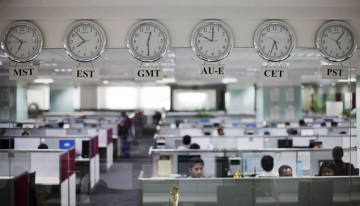 Gartner research VP John Lovelock has warned that the channel should be making contingency plans for a recession triggered by Brexit.
Gartner research VP John Lovelock has warned that the channel should be making contingency plans for a recession triggered by Brexit.
Lovelock explained that although Brexit will have a “dampening effect” on spend in EMEA, full spending on IT will resume 12 months after Brexit.
He warned that a range of scenarios could upend their forecast, such as a no-deal or hard Brexit.
The spending that has come out of the market in 2017 and 2018 is from businesses reacting to the uncertainty of what the deal will be. While businesses are uncertain as to what is happening, they can’t plan and tend to stick their hand back in their pocket and wait until they have more certainty on what the rules will be and how they will be able to engage with them, he said.
His advice was not to necessarily look at our forecast, which is the ‘most likely’ scenario.
“There is a rising chance of a recession in 2019 or 2020 – it’s not so large that it is in our ‘most likely’ scenario – but it is possible and they ought to have a plan should a recession occur.”
Overall IT spending in EMEA is expected to hit £742 billion in 2019, representing a two percent increase from 2018’s estimated total of $954 billion. The UK is predicted to see $204 billion spend next year – a 1.9 percent decrease on 2018’s figure.
Brexit is tiggering IT spending across EMEA, causing it to be the third-slowest-growing region for IT spend in 2019, after Eurasia and Latin America.
Lovelock says this is due to a number of factors, including Brexit, but price problems with mobile phones causing supply and demand to plateau.
Gartner predicts enterprise software will continue to be the area seeing the most expenditure, predicting a growth of 7.3 per cent – a slowdown from the 12.7 percent rate it grew at in 2018.
Enterprise application software can grow at such a strong rate is because it starts to take money from other areas as it goes into the cloud, he said.
“For example, if I am buying licensing software from a vendor, I need to also buy a server and storage, networking and backup equipment. If I buy cloud software, I don’t have any extra charges, so I can take money out of my server and storage spending and put it into cloud software.”











